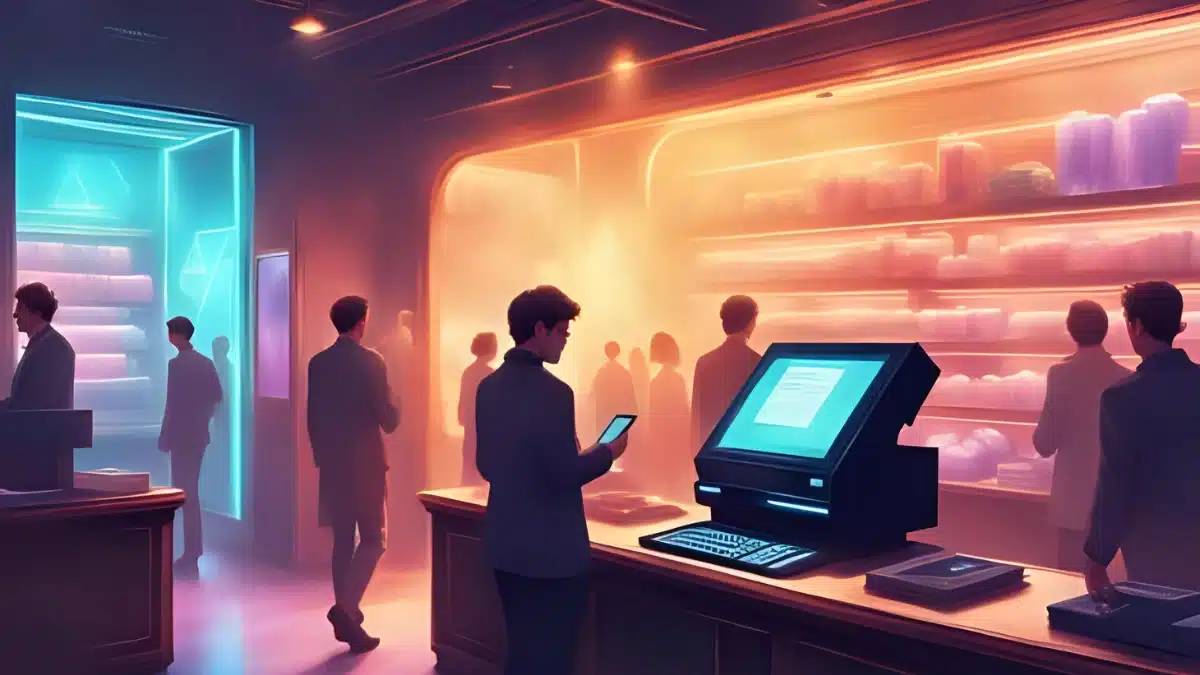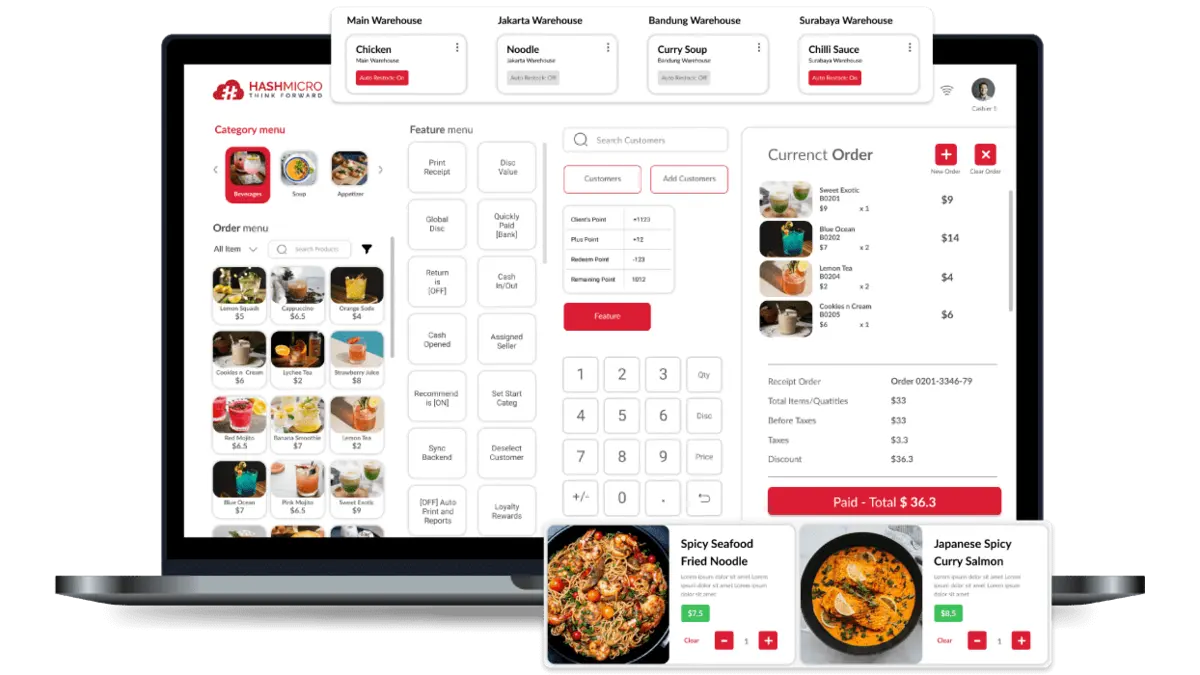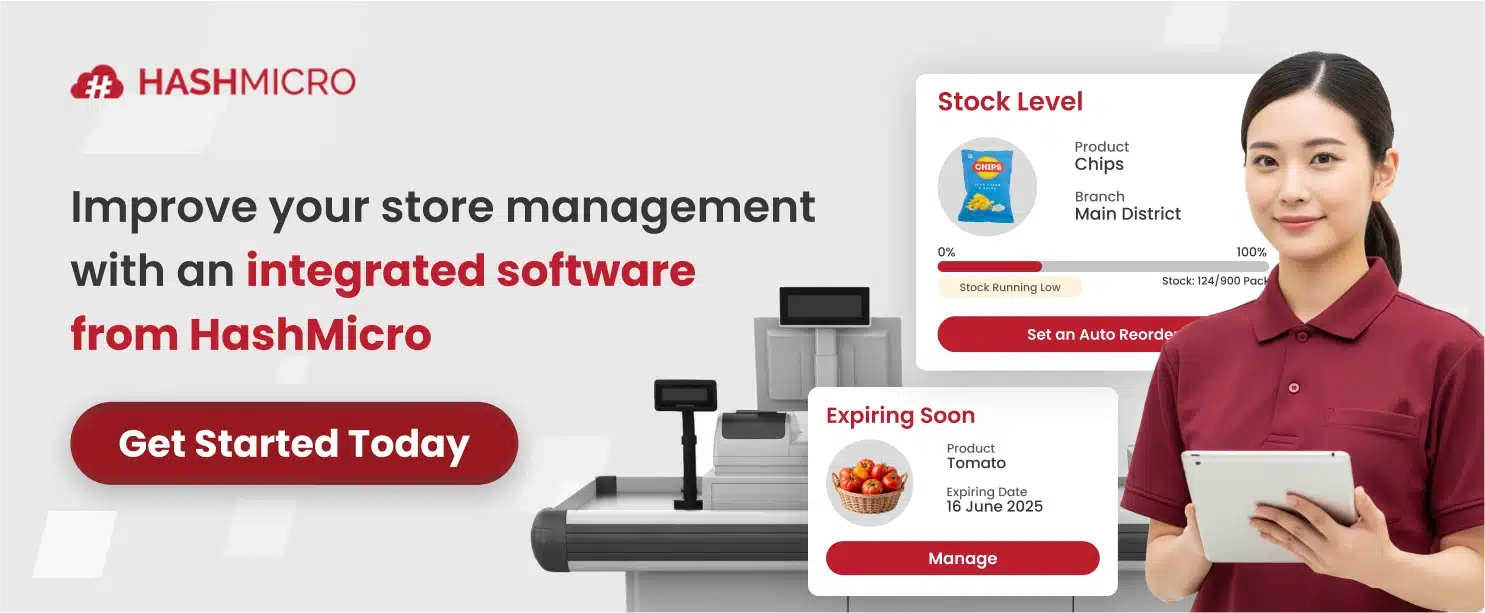Whether it’s a boutique on Orchard Road or a neighbourhood convenience store, efficiency and customer experience are essential in retail businesses. Retail POS system are essential for streamlining operations, managing inventory, and enhancing customer service.
A conventional cash register has developed into a powerful business tool for e-commerce, analytics, sales, and loyalty programs. As the world undergoes a digital revolution, selecting the best point-of-sale system has become an essential strategic choice.
When selecting a POS system, consider factors such as business size, industry, budget, and the specific features required. HashMicro Retail POS System, for example, offers free demos and consultations to help you make an informed decision. Let’s continue reading this article, as we will take you on a journey about retail POS systems in Singapore and how they might benefit your business operation.
Key Takeaways
|
What is a Retail POS System
In Singapore, a retail point-of-sale (POS) system is a digital tool that retail companies use to effectively manage inventory, sales transactions, customer relations, and operations. Retailers can perform and track sales in-store and increasingly online with the assistance of a combination of hardware, including a touchscreen interface, a receipt printer, a barcode scanner, and a software-based POS program.
In the business workflow, a retail POS system connects the various operational aspects of the sales process. When a customer makes a purchase, the retail POS system automatically records the transaction and generates real-time sales reports.
Key Features to Look For in a Retail POS System

Some of the key characteristics of a robust Retail POS system include flexibility that can be easily adjusted to meet business needs, as well as a robust data security system to protect transaction data and customer information. Here are the key features of the Retail POS System:
1. Sales processing
The ability to efficiently and adequately process sales is the foundation of any point-of-sale system. In Singapore’s cashless retail environment, a modern system must accept various payment methods, including cash, credit and debit cards, as well as well-known digital wallets.
2. Inventory management
An efficient inventory management module is crucial for merchants to effectively control stock levels, especially when operating multiple locations or online storefronts. Singaporean businesses require retail point-of-sale (POS) systems that track real-time inventory, ensuring that each sale, return, or replenishment is accurately recorded in real-time.
3. Customer relationship management
Retailers can gather and use consumer data to increase customer loyalty and enhance customer service by utilising CRM elements in point-of-sale systems. These systems automatically create client profiles by tracking past purchases, contact information, and preferences.
Using this data, companies may easily develop loyalty programs, segment their consumer base, and personalise marketing campaigns.
4. Reporting and analytics
Retail point-of-sale (POS) systems transform routine sales data into valuable company insights through integrated reporting and analytics solutions. Singaporean retailers can access comprehensive statistics on daily sales, including the best- and worst-performing products, peak shopping hours, and employee performance.
5. Cloud-based accessibility
Due to their simplicity and flexibility, cloud-based point-of-sale (POS) systems are gaining popularity in Singapore. Retailers can utilise cloud access to monitor and manage their businesses from any location, whether they have multiple locations, are travelling, or working from home.
Benefits of Using Modern Retail POS Software
Retail POS Software has become an essential tool for Singapore companies in handling their business operation. Here are the benefits of using retail management software in Singapore:
-
Improved operational efficiency
Retail management software automates and streamlines daily tasks, including sales, inventory tracking, ordering, and staff administration. These benefits make it one of the most practical Retail Business Management Tips for reducing human error, speeding up transactions, and improving overall business efficiency.
-
Real-time data access & decision making
Because cloud-based retail solutions offer real-time data insights across all locations, executives can monitor performance from anywhere, including on the road.
This real-time visibility enables merchants to make informed decisions about pricing, staffing, stock planning, promotions, and other aspects of a dynamic market like Singapore, where consumer trends change rapidly.
-
Better inventory control
Retail software enables you to track inventory in one or more stores, down to the last unit. The system assists in forecasting demand, alerts when stock levels are low, and even automates reordering.
In Singapore, where shop space is limited and stock rotation is crucial, this ensures you never lose a sale due to out-of-stock items and prevents waste from overstocking.
-
Enhanced customer experience
Retail management software supports features such as CRM, loyalty programs, and personalised promotions, which help develop lasting relationships with customers.
Convenience and customisation are essential to Singaporean customers; the POS’s ability to identify past purchases, provide discounts, and reward repeat business makes for a more seamless and enjoyable shopping experience.
-
Government grant support
The government of Singapore actively encourages Businesses to adopt digital technology. Thanks to the up to 50% subsidy available for solutions authorised under the Productivity Solutions Grant (PSG), local retailers can purchase retail management software at a reasonable cost. This encourages small companies to upgrade their operations and lowers financial obstacles.
Explore our banner below to discover these benefits and access business funding through government grants.
Upgrade your Retail Business to the Next Level with HashMicro Retail POS System

HashMicro Retail POS System is a comprehensive retail solution for companies in Singapore and Southeast Asia. From small boutiques to multi-branch businesses, the system serves a diverse range of retail types and is renowned for its robust functionality and local support.
The solution is ideal for businesses seeking automation, scalability, and comprehensive business insights, as it enables multi-outlet enterprises, regional payment options, and real-time data synchronisation. You may schedule a free demo with HashMicro to see how it works for your company.
Here are the key features of the HashMicro Retail POS System:
- Smooth system integration: Provides an integrated retail process by integrating with other systems, such as inventory management and CRM.
- Detailed staff and customer history: Each transaction, along with its time and date, is automatically recorded, enabling better tracking and performance insights.
- Auto stock updates: Every transaction instantly updates inventory levels, making stock and sales tracking simple.
- Flexible pricing and promotions: Implementing promotional campaigns is straightforward, as pricing can be easily adjusted and discounts applied.
- Customer-focused features: Support tools and loyalty programs that enhance general consumer satisfaction.
- Real-time automated reports: Every transaction is recorded in real-time, resulting in accurate and transparent data that supports informed decision-making.
Conclusion
Singapore has a dynamic market, so a retail point-of-sale system is essential for optimising daily operations, enhancing customer satisfaction, and facilitating business expansion. Understanding your business strategy and guaranteeing long-term scalability are vital in choosing the best retail POS system.
HashMicro POS Retail System stands out as a comprehensive solution for businesses in Singapore. It provides seamless scalability, multi-outlet support, localized payment integration, and robust inventory management, all supported by a dedicated support staff based in Singapore.
Try our free demo now to experience how HashMicro can streamline your business operation. You can also receive 70% funding from the CTC Grant today!

FAQ About Retail POS System
-
What is the cost of a POS system in Singapore?
On average, the initial cost of a POS system ranges from $0 to $2,000. This includes hardware, software, and installation fees. Then, depending on the size of your business, number of retail locations, add-ons, and sales volume, you could pay from around $500 to $1,000 a year to use the POS system.
-
What are the four types of POS systems?
Today, small businesses use four main types of POS systems: legacy, tablet, mobile, and cloud-based POS systems.
-
Is a POS machine the same as a POS terminal?
A POS machine, also known as a POS terminal, is a component of a POS system, specifically designed as a hardware device to process sales transactions. It includes a touchscreen display, keyboard, barcode scanner, receipt printer, card reader, cash drawer, and more.

































